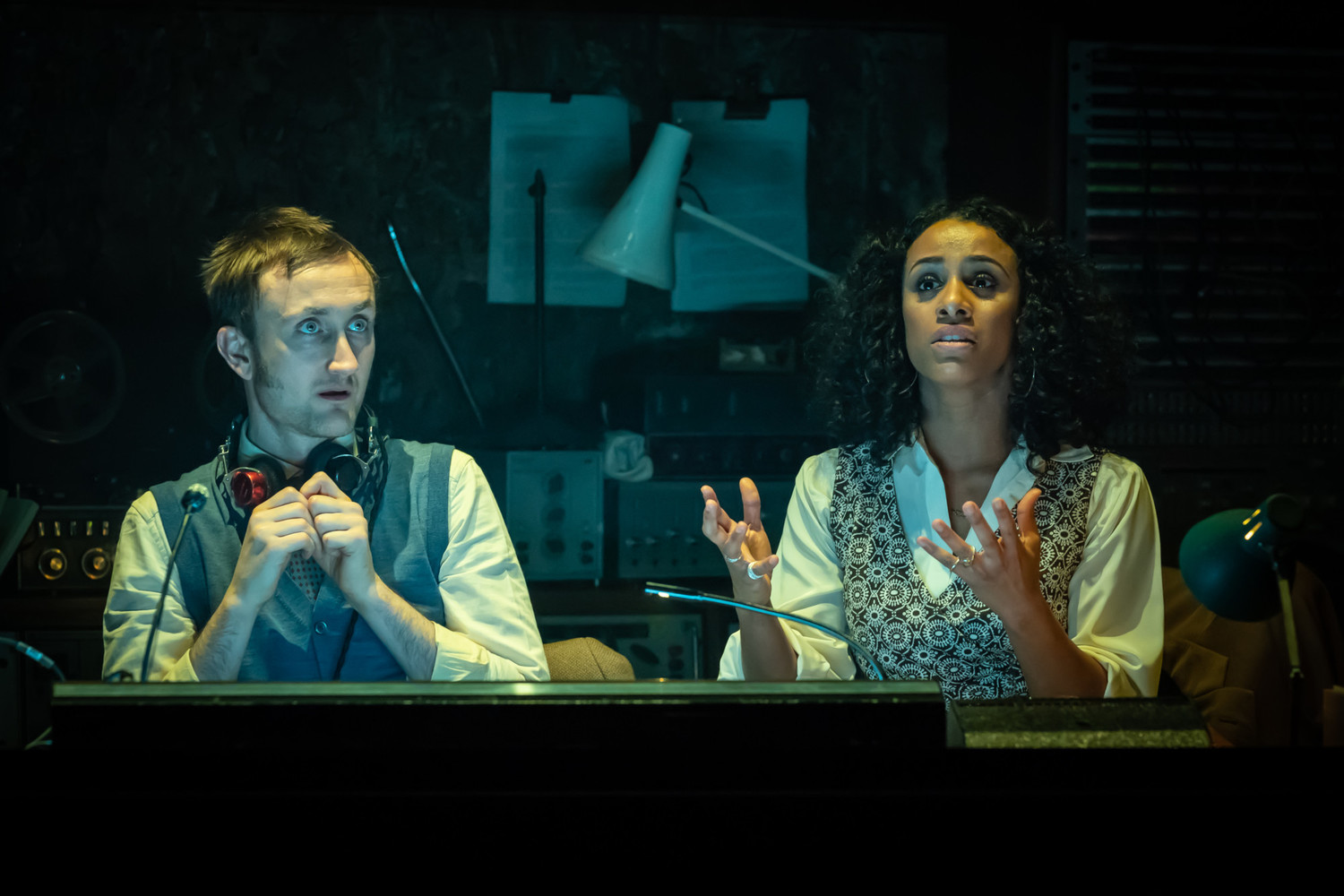Review: BERBERIAN SOUND STUDIO, Donmar Warehouse

![]() The dull drag of chair feet on a carpeted floor. A slight creak as a laptop lid is lifted, followed by the click of a power button and the gentle whirr of a hard drive starting up.
The dull drag of chair feet on a carpeted floor. A slight creak as a laptop lid is lifted, followed by the click of a power button and the gentle whirr of a hard drive starting up.
A crack of knuckles, a breath out to focus the mind... a pause... then the tapping of fingers on keys.
So began this review.
If there's one thing Berberian Sound Studio at The Donmar Warehouse will inspire in you, it's a new appreciation for the soundscapes that surround you.
It's the 1970s and British sound designer Gilderoy (Tom Brooke) has been invited to Italy by movie director Santini (Luke Pasqualino). To say he's out of his comfort zone is an understatement - he doesn't speak the language and he's more used to adding sound effects to nature documentaries than Italian giallo horror-thriller films.
He is however delighted by the high quality machines he has at his disposal, and commits himself to finding ways to put across the subliminal terror of Santini's movie, including the imagined 'bacio indelebile (indelible kiss)', an unseen torture device to which the movie's unfortunate heroine will be submitted.
This includes some creative use of vegetables, manipulation of cassettes mailed to him by his mother back in Dorking, and a couple of particularly eye-watering moments which the more faint of heart may prefer to watch through their fingers...
An adaptation of the movie of the same name, Berberian Sound Studio has been brought to the stage by Joel Horwood and Tom Scutt, in his directorial debut.
It's a slightly curious play, but a really beautifully put together production.
There is of course a real emphasis on sound design, an art which all too often flies under the radar in the theatre, or at least goes unappreciated by many theatregoers. Here (credit to sound designers Ben and Max Ringham, foley designer Tom Espiner and Scutt) it's placed centre stage right from the opening scene, played in near blackout as if to give the audience a crash course in listening as well as watching.
Sound is used with great aplomb to create humour, tension and imagined horror.
But it also looks great. The action takes place exclusively in a recording studio, with plenty of moody lighting, sound booths and props, and some extremely well-choreographed passages of sound effect production by foley artists Massimo and Massimo (played by the show's actual foley artist Tom Espiner and Hemi Yeroham).
The frankly brilliant Tom Brooke imbues Gilderoy with plenty of British reserve to act as a counterpoint to the more expressive (and largely Italian) cast around him. Chunks of the dialogue are in Italian - for those who understand it (I'm learning and was surprised how much I could pick up) there's a bit of humour in there, but for those who don't it's actually an effective mechanism to highlight the cultural divide that Gilderoy finds himself facing.
The play also highlights issues of exploitation in the film industry - the women on screen are there largely to fulfil the dark, torture-laden fantasies of the director, whilst the voice actresses providing the overdubbing (Lara Rossi and Beatrice Scirocchi) know that if they question the direction they're given, there will be consequences for their continued role in the production.
Berberian Sound Studio might be a bit of an acquired taste, but I enjoyed it a lot. It's a very impressively styled piece of theatrical craft, and also an indication of the great promise of Scutt as a director.
Berberian Sound Studio at The Donmar Warehouse until 30 March 2019
Photo credit: Marc Brenner
Reader Reviews

Videos

